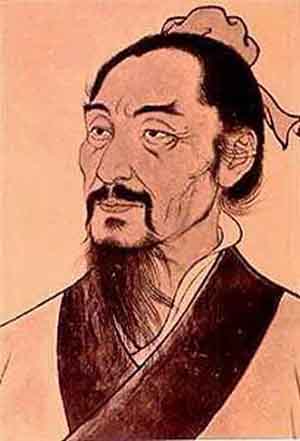
Mo Di (Mo Ti), better known as Mozi (Mo-tzu) or "Master Mo" was a thinker active from the late 5th to the early 4th centuries BCE. He is best remembered for being the first major intellectual rival to Confucius and his followers. Mozi's teaching is summed up in ten theses extensively argued for in the text that bears his name, although he himself is unlikely to have been its author.
The most famous of these theses is the injunction that one ought to be concerned for the welfare of people in a spirit of "impartial concern" (jian'ai) that does not make distinctions between self and other, associates and strangers, a doctrine often described more simplistically as "universal love".
Mozi founded a quasi-religious and paramilitary community that, apart from propagating the ten theses, lent aid to small states under threat from military aggressors with their expertise in counter-siege technology. Along with the Confucians, the Mohists were one of the two most prominent schools of thought during the Warring States period (403-221 BCE), although contemporary sources such as the Hanfeizi and the Zhuangzi indicate that the Mohists had divided into rival sects by this time.
While Mohist communities probably did not survive into the Qin dynasty (221-206 BCE), Mohist ideas exerted a decisive influence upon the thinkers of early China. Between the late 4th and late 3rd centuries BCE, later Mohists wrote the earliest extant Chinese treatise on logic, as well as works on geometry, optics and mechanics. Mohist logic appears to have influenced the argumentative techniques of early Chinese thinkers, while Mohist visions of meritocracy and the public good helped to shape the political philosophies and policy decisions of both the Qin and Han (202 BCE-220 CE) imperial regimes. In these ways, Mohist ideas survived well into the early imperial era, albeit by being absorbed into other Chinese philosophical traditions.
